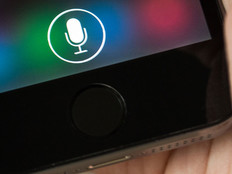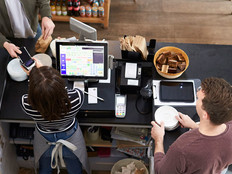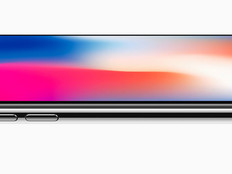Facebook Home Makes a Grab for the Smartphone's Soul
Facebook Home, the mobile revolution from Menlo Park that we’d all been waiting for, finally arrived on Friday. But in a surprise twist, the social media emperor didn’t launch its own smartphone.
Instead, it went for something in between a mobile app and an OS: an app launcher for the Google Android mobile platform.
For years Facebook CEO Mark Zuckerberg has dismissed rumors that the company would build its own hardware, and in a Wired interview after the Facebook Home announcement, he explained why.
I’ve always been very clear that I don’t think [building a Facebook phone is] the right strategy. We’re a community of a billion-plus people, and the best-selling phones—apart from the iPhone—can sell 10, 20 million. If we did build a phone, we’d only reach 1 or 2 percent of our users. That doesn’t do anything awesome for us. We wanted to turn as many phones as possible into “Facebook phones.” That’s what Facebook Home is.
In brief, an app launcher is like a skin for a mobile OS. It takes over the look and feel of the home and lock screen, as well as the navigation of the device. It makes over most of the things that people associate with an operating system, so if it looks like an OS and acts like an OS, most users will think it’s an OS.
What does this mean for the future of smartphones?
There are a lot of scenarios that could play out, but assuming the Facebook Home turns out to be a success (that’s a big assumption, as its only being preloaded on the HTC One for now and will be released to the Google Play store on April 12), we could see a repeat of the mobile app boom that the iPhone introduced when it opened its App Store.
Facebook also has a history of tapping into the power of outside developers; the social network rode the wave of third-party Facebook apps to the top of the social media pile, leaving MySpace in its wake.
If Facebook Home is a homerun, expect other companies to follow in its footsteps. We could see a LinkedIn phone for executives who want to stay plugged in to their professional network 24/7, or a Reddit phone for Internet junkies who wish to remain on top of the latest Internet meme as soon as possible.
The interesting thing about Facebook Home’s somewhat-hostile takeover (Google has been supportive in public statements so far) is that Android's open-source nature enabled it. Critics of Android’s fragmented ecosystem have long believed it a weakness compared to Apple’s more controlled, consistent experience. But the tables have turned, and tech reporters and analysts are now wondering aloud if Facebook Home will make Apple change its closed-ecosystem stance.
CNET’s Ben Parr thinks this could be a pivotal moment in the trajectory of the iPhone and iOS.
Android has always offered more flavors to consumers than the iPhone's iOS, but now that pallet has expanded and will continue to expand. And while I still consider iOS a slightly superior OS in terms of user experience and apps, Android has a phone for every type of user, from the price-conscious one to the high-end user (the Galaxy S4 is one hell of a device).
I don't claim to know whether open vs. closed, or fragmented vs. integrated, is a better business approach. Both have their merits, and clearly you can build billion-dollar companies with both philosophies. But business moves in cycles, and right now the open approach is gaining momentum. I believe Facebook Home signals a new era in the battle between iPhone and Android, one that gives Google the advantage.
And thus begins a new battle for the smartphone’s soul.







